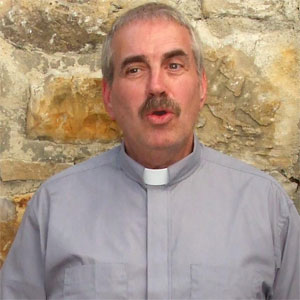
Chief Justice Roberts, one of the four justices who voted against expanding marriage rights to all people, expressed in his dissent that, while he thought marriage equality might be a good thing for society, he didn’t see any Constitutional right to it.
A few days later, Sen. Elizabeth Warren, writing in Time magazine, rejected the Chief Justice’s assertion, saying that Roberts was wrong, that the Constitution “had everything to do with it.”
I guess it all depends on one’s perspective.
Some on the Supreme Court believe it’s their responsibility to uphold the words of the Constitution al pie de la letra—according to the letter of the law, ensuring that what was written centuries ago doesn’t change with the times.
Others, however, believe that the words written when our Constitution was ratified are meant to be signposts and guidelines; it’s not the words that are important, but their meaning and intent.
So, interpreting an age-old document in the light of changing norms and realities becomes paramount in the Supreme Court’s responsibilities.
For those of us reared in Judeo-Christian traditions, it’s a familiar dilemma, since we must ask ourselves the same questions about what’s written in the Bible.
Do we follow the letter of the law or the spirit of the law?
“Of all the things that grieve us, perhaps what’s been most difficult is seeing some of our friends, family members and folks we’ve sat next to in church giving their hearty ‘Amen’ to a practice we still think is a sin and a decision we think is bad for our country,” lamented a conservative Christian after the Supreme Court ruled marriage equality to be the law of the land.
“ … a practice we still think is a sin …”
Who’s to judge which practices are still sins? Eating pork or shell fish? Working on the Sabbath? Being divorced? Using credit cards that charge usurious rates? Mixing ingredients or fabrics in what we eat and what we wear? Getting inked—as in having a tattoo?
In terms of the Law—as the Scriptures enumerated—Jesus was the judge, measuring what had been written and taught by what it really should mean. “You have heard it said that … but I tell you,” Jesus said over and again. Remember what he said about adultery? “You have heard it said that you shall not commit adultery. But I tell you that anyone who looks at someone lustfully has already committed adultery in his or her heart.”
That’s the spirit of the law, versus the letter.
But we’ve become a bunch of stone-throwing Christians focused on gnats rather than the planks we need to cast aside.
Let me tell you about Elena. Elena used to clean for us when we lived in Jacksonville, Florida. We found each other on Craigslist. A committed Seventh Day Adventist with a fair complexion and blue eyes, Elena was Russian and married to a black American man. We were convinced she was a “mail order bride.”
Oh, we had some issues with Elena. Especially when she began to email me certain Scripture verses. Pardon the pun, but I finally had to set Elena “straight” about those clobber verses and say that we hired her to clean, not to preach. If she wanted to debate the meaning—the spirit—of those Scriptures that she had memorized as her church prescribed, I reminded her that I was an ordained pastor who’d attended seminary and preached every Sunday.
We had other Seventh Day Adventist friends who sincerely cared about us, enjoyed getting together with our families, and never, ever, questioned us about the letter of the law according to their church, because they knew us and loved us just as we are.
Of course, the Seventh Day Adventist Church isn’t the only church swept up in conundrums between the letter and spirit of the law. That’s probably why Pope Francis is caught between a rock and a hard place. The spirit leads him to say, “Who am I to judge?” and to cry for his beloved planet, while his orthodox catechism—the letter of the law—prohibits him from doing any more for women who want to be priests, priests who want to be married, and LGBT people who want to be recognized within the Catholic church.
Some of you may be from a Methodist background. You know their motto: “Open Doors. Open Minds. Open Hearts.” Maybe so, until human lives and needs compete with their Book of Discipline. Guess who gets sacrificed when the letter of the law trumps the spirit?
Then there’s Zion United Methodist Church here in Fish Creek, Wisconsin. On July 5th, the 140-year-old country church held an old-fashioned “Hymn Sing,” donating the free-will offering taken during its service to Coventry Care, a Sister Bay clinic providing health care to those who ordinarily can’t afford it.
Now, that’s the spirit of the law!
A number of years ago, in the Episcopal Church, one of the most socially progressive of all denominations, dozens of member churches seceded to align themselves with more conservative Anglican churches overseen by African and South American bishops because the letter of their law refused to recognize a man elevated to the office of bishop by their peers. See, despite the love and esteem in which he was held by so many, he was open about living in a loving relationship with another man.
More recently, the Episcopal Church elected its first black presiding bishop.
Yet still, the damnation inherent to the letter of the law continues to take its toll on “others,” people not like “us.”
In Charleston, South Carolina, just days after the U.S. Supreme Court released a series of decisions which infuriated some “good Chrishun’ folks,” an avowed white supremacist shot dead nine black people at an historic church after a Bible study and praying with them!
Within days, the Mt. Zion African Methodist Episcopal church in Greeleyville, South Carolina, had become the seventh traditionally black church to burn down in the south. Soon, it was ten churches.
Nine black people massacred while at worship. Ten black churches torched while simply standing. And subsequently, at least three black female pastors in South Carolina received death threats because—according to the letter of biblical law—women aren’t allowed to teach, preach, or hold any office over men!
“Women cannot be head of the man in the church, home, and the world,” wrote someone signing the letters as “Apostle Prophet Harry Leon Fleming.”
Yep, that’s the letter of the law believed by some folks.
Kind of ironic, huh, that Paul, in 2 Corinthians 3:6, says that God, “has made us competent as ministers of a new covenant—not of the letter but of the Spirit, for the letter kills, but the Spirit gives life.”
And kind of scary that all of these horrors began to happen only days after the U.S. Supreme Court issued its controversial rulings.
So, how do we move forward—respectfully, lovingly, productively—with those who feel and believe differently? How do we stop this civil war among Christians and their churches from escalating? How do we respect the letter of the law for what it is, not what it isn’t, and put it within its proper content and greater, sacred context?
What if every person who attends a church, synagogue, or mosque asked themselves these questions: Is my religion dissolving walls of separation and calling me closer to all people? Am I being taught that I am “right” as opposed to others, or am I being challenged to listen to the beauty of diversity? Is my God concerned about a mere percentage of humanity or our human race and world as a whole?
The diversity of contemporary American religious life is both rich and bewildering. But there is nothing more destructive in our world than intolerance cloaked in the guise of faith.
No matter how educated, talented, rich, or right you think you are, it’s how you treat people that tells all.
Integrity is everything.
Let me end with this short story:
A couple moves into a new neighborhood. The next morning as they are eating breakfast, the woman sees her neighbor hanging the wash outside. “That laundry isn’t very clean. She doesn’t know how to wash correctly. Maybe she needs a better laundry detergent.” Her husband looks on, remaining silent. Every time her neighbor hangs her wash out to dry, the woman makes the same comments. A month later, the woman is surprised to see a nice clean wash on the line and says to her husband, “Look: she’s finally learned how to do her wash the right way. I wonder who taught her this?” The husband replies, “I got up early this morning and cleaned our windows.”
And so it is with life: what we see when watching others depends on the clarity of the window through which we look.
Photo edited by Dan Wilkinson, using photos from Unsplash.
 About Bruce H. Joffe
About Bruce H. Joffe
Bruce H. Joffe is a professor and pastor probing the intersections of gender, media, and cultural norms—including organized religion.